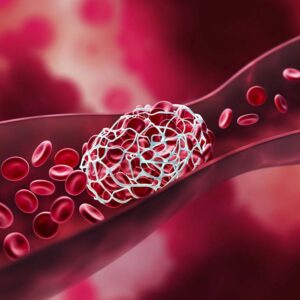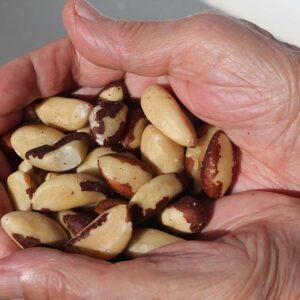
Miracle Drink Busts Blood Sugar and Heart Disease
Dear Living Well Daily Reader,
Most of us agree that no morning starts until we’ve had a cup of coffee.
And with good reason. Coffee’s full of caffeine, antioxidants and polyphenols that kick your mind and body into gear.
But according to groundbreaking Japanese research, coffee could be doing a lot more than giving you a morning jolt — it could also be protecting your body from heart disease and diabetes.
You see, special compounds called chlorogenic acids can slam the brakes on your blood sugar, decrease your appetite and even help beat back oxidative stress — one of the key drivers of inflammation and disease.
For the study, researchers gave 19 healthy men a test meal followed by either a polyphenol-rich cup of coffee containing 365 mg of chlorogenic acid or a placebo.
Three hours later, the scientists tested the participants’ blood.
And what they found was stunning…
Those who drank the coffee had significantly lower blood sugar, increased markers of blood flow and vascular health as well as lower levels of oxidative stress.
Even better, the coffee group experienced a significant increase in an important hormone called GLP-1, which is vital for appetite and blood sugar regulation.
When you look at these results as a whole, it seems that by simply drinking a cup of coffee after your meal, you can ward off dangerous maladies like diabetes and heart disease.
A 7 oz. cup of coffee can have 70–350 mg of chlorogenic acid. Chlorogenic acid levels decrease during the roasting process. Therefore, choosing a brew that’s lighter is an easy way to close this gap and get more of these health-boosting compounds.
Can’t do coffee?
No problem.
You can also get chlorogenic acid by taking green coffee bean supplements. You can pick these up at your local pharmacy or through vitacost.com. Be sure to look at the label for chlorogenic acid content.
Live well,

Natalie Moore
Managing editor, Living Well Daily
Ed. Note: Please send your feedback: feedback@livingwelldaily.com – and click here to like us on Facebook.
Sources
[2] Chlorogenic Acids in Coffee
Written By Natalie Moore
Natalie Moore is a dedicated health researcher with a passion for finding healthy, natural, and science-based solutions. After a decade of direct healthcare experience in western and natural medicine, she was involved in public health research before joining Living Well Daily.
View More Free Articles
Mailbag: Diarrhea Remedies That Really Work
“I have had diarrhea for 6 months. I’m going crazy and don’t know how to stop it! Please help!” – Can’t Stop Running Dear Can’t Stop, Few things disrupt life like battling a bout of diarrhea. Diarrhea is typically defined as having three or more loose, watery stools daily. If you experience this for over...
Take the SHORTER Path to Dramatically Better Health
Are you tired of fitness gurus preaching the virtues of 5 AM workouts and pushing Olympic-level training regimens? Their narrative can feel exhausting and entirely unattainable. But before you toss in the towel completely, I’ve got news that might just put a spring back into your step. A groundbreaking new study reveals that the key...
Unexpected Perks of Your Coffee Habit Revealed!
We all know that the first cup of coffee in the morning can FEEL like a lifesaver. But what if it might actually BE saving your life? A groundbreaking new study suggests that your daily coffee habit could be protecting you from not just one but multiple chronic diseases. Let’s pour over this fascinating research…...
The TRUTH About Diabetes Drugs and Brain Aging
You’ve probably seen the gushing headlines… Most say something like, “Common diabetes drug protects the brain against aging!” And let’s face it, that sounds fantastic. After all, who doesn’t want to keep their brain young and in tip-top shape? The headlines refer to the results of a new study that suggests the widely prescribed type...
Hidden Smartphone Danger Puts You at Risk
Remember when we thought cell phones were just something for young folks to obsess over? Back when we were convinced they were nothing more than a passing fad? Well, times certainly have changed. Now, most people… including many of us older folks… have jumped on the smartphone bandwagon. Heck, some of us are practically as...
Preserve Your Mobility with “Agile Aging” Exercises
Aging has a way of humbling us. You lose hair where you want to keep it—and often end up growing it where you don’t. With every passing year, your eyesight fades, and your waistline expands. And as your once quick pace begins to slow, you fear developing the dreaded “senior shuffle.” But here’s the thing....
Yes, Lazy Saturday Lie-Ins Can BOOST Your Health
Are you burning the midnight oil during the week and catching up on sleep on weekends? Well, I’ve got some news that might help you feel less guilty about those lazy Saturday mornings. A new study suggests that weekend lie-ins might be doing far more than just helping you feel refreshed. Experts say they could...
Mailbag: 7 Hidden Culprits Behind Your Weight Gain
“Why am I gaining weight, even though I am watching what I am eating?” – Battling the Bulge Dear Battling, Gaining weight when you’re not trying to is frustrating. And it just gets worse as we age… often regardless of our diet. The truth is that various factors can promote weight gain even when you’re...
Popular Artificial Sweetener Linked to Dangerous Heart Risk
Remember when erythritol was the darling of the health food world? Well, this popular sugar substitute might not be as sweet a deal as we were led to believe… A shocking new study reveals a dark side to this widely used artificial sweetener. It turns out erythritol is associated with a dangerous—and even deadly—heart risk....
Cracking the Code on Chronic Inflammation
Inflammation and obesity are the evil tag team at the heart of nearly every major disease we face—from diabetes to obesity. What starts as a normal, healthy process to fend off dangerous invaders can quickly fan into the flames of chronic inflammation… and that includes in your gut. The trouble is almost no one has...









